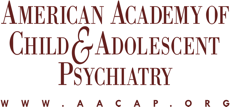Clinical Case Conference 11 (open)
Neuropsychiatric Implications of Anti-N-Methyl-D-aspartate (Anti-NMDA) Receptor Encephalitis
Anti-N-Methyl-D-aspartate (anti-NMDA) receptor encephalitis is a relatively new autoimmune disorder, a core characteristic being an initial presentation with neuropsychiatric symptoms including seizures, psychosis, and cognitive decline. Predictors of good outcome include early treatment and no admission to an intensive care unit. Child and adolescent psychiatrists (CAPs) are often the first consultants to see these patients due to the symptom overlap with other known psychiatric diagnosis such as schizophrenia, mood disorders with psychotic features, and delirium. This CCC provides an in-depth review of anti-NMDA receptor encephalitis from a neuropsychiatric perspective; including clinical presentation, differential diagnosis, treatment, and multidisciplinary case management. Given the role CAPs play in the early diagnosis and management of patients with anti-NMDA encephalitis, it is imperative that they become familiar with the disorder to ensure early diagnosis and treatment
Neuropsychiatric Implications of Anti-N-Methyl-D-aspartate (Anti-NMDA) Receptor Encephalitis
Sunday, October 27, 2013: 8:00 AM-11:00 AM
Chairs:
Co-Presenter:
8:00 AM
11.1
Review of Anti-N-Methyl-D-aspartate (Anti-NMDA) Receptor Encephalitis and It's Pathophysiology
8:20 AM
11.2
Treatment Approach for Anti-N-Methyl-D-aspartate (Anti-NMDA) Receptor Encephalitis at the Hospital for Sick Children, Toronto, Canada
8:40 AM
11.3
Anti-N-Methyl-D-aspartate (Anti-NMDA) Receptor Antibody Encephalitis: Long-Term Recovery and Cognitive Effects
9:00 AM
11.4
Long-Term Recovery and Cognitive Effects
Sponsored by the AACAP Physically Ill Child Committee
See more of: Clinical Case Conference
